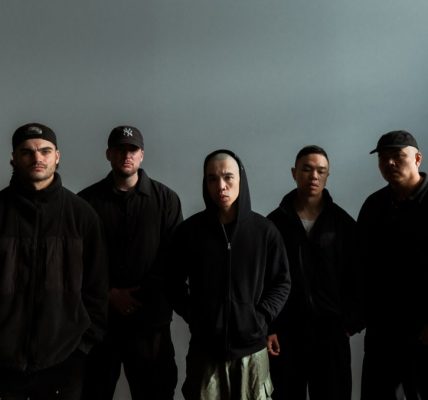NIVA ‘25 — the highly anticipated fourth annual conference organized by the National Independent Venue Association, will take place from June 22-25 in Milwaukee. This year’s gathering is particularly significant as it unfolds amidst some of the most intense ticketing battles occurring across the nation. According to NIVA’s executive director, Stephen Parker, nearly 70 pieces of legislation have been introduced in close to 30 states regarding ticketing practices. This conference aims to explore the multifaceted dimensions of these struggles, highlighting the positive developments, setbacks, and challenges that have emerged in this pivotal fight for the future of live performance venues.
“Ticketing remains our primary focus,” Parker shares with Billboard. “It has evolved into a significant proxy battle within legislatures — at the federal, state, and local levels — over the future landscape of live performances.” This underscores the critical nature of the ticketing discourse that is shaping the operational realities for many independent venues and their stakeholders.
The conference will feature a variety of dynamic panels tackling pressing issues, such as “Battling Scalping Goes to Washington, D.C.”; “Turn the Tables: Make the Ticket Resale Market Work For You”; and “How We Solve a Problem Like Chargebacks.” These discussions will provide actionable insights into the various ticketing issues that independent venues face. Additionally, the topic of ticketing will interlace with conversations surrounding local and federal regulations, ensuring a comprehensive examination of the challenges within the industry.
“This conference serves as both an opportunity and a catalyst for collaboration,” Parker emphasizes. “It allows us to reflect on the events of the past year — our victories and setbacks in combating predatory resellers.” The goal is to leave the conference equipped with a strategic plan to counter any anti-consumer policies promoted by predatory resale platforms and brokers, ensuring that the freedom of fans from deceitful practices and fraud continues to be a top priority.
The negative experiences associated with purchasing tickets are significantly affecting fans’ willingness to attend more events, driving ticket prices to such heights that many can only afford a limited number of shows annually. From the venue perspective, the issue of credit card chargebacks has escalated into a major concern that threatens financial stability.
One of the critical discussions at the conference will focus on strategies to mitigate credit card chargebacks. “Especially since a majority of these chargebacks appear to originate from predatory resellers who exploit ticket sales to maximize their profits, often at the expense of small venues and independent artists,” Parker explains. This highlights the ongoing need for independent venues to develop robust defenses against such detrimental practices.
While ticketing will be the focal point of discussions throughout the conference, which will be held at various independent venues across the city, a wide array of other topics will also be addressed. Following each conference, NIVA engages with its 1,500 members to gather feedback on issues they want to see discussed in the upcoming year’s program. This year, under the guidance of programming director Jamie Loeb, the organization has successfully incorporated more than 100 relevant topics affecting independent venue owners into the agenda. Among these, NIVA ‘25 will also delve into declining alcohol sales, the role of middle agents, the complexities surrounding performing rights and licensing, effective marketing strategies, and navigating the challenges of the attention economy.
“If I were to describe the main theme of this conference [is], it’s all about ‘How do we break through?’” Parker states, emphasizing the importance of innovation and adaptation in the face of industry challenges.
A key strategy for achieving breakthrough success is effectively communicating the stories of independent venues and the profound impact they have on their local communities and beyond. During the conference, NIVA plans to reveal extensive data highlighting the economic contributions of independent venues, which the association believes will be instrumental in articulating their vital role in the entertainment ecosystem.
“I can tell you that the data presents a mixed picture,” Parker shares. “There’s considerable promise, optimism, and potential growth for our sector. However, this growth is significantly hindered by the persistent threats posed by predatory resale practices, monopolistic behaviors, and inflationary pressures. Our discussions will focus on actionable steps we can take to address these monopolistic challenges moving forward.”
Attendees will gain valuable insights into best practices for engaging with government entities, ranging from local city councils to state legislatures. They will also learn about how other countries are taking proactive measures to preserve their own cultural spaces and support independent artists and venues.
The association will utilize this conference as a platform to elaborate on the expansion of its collective bargaining agreements. Since launching its collective bargaining program nearly 18 months ago, NIVA’s efforts have continued to grow and evolve.
“At least 25% of our members have leveraged this program, benefiting from discounts on food, equipment, sound, and lighting services. We’re exploring ways to extend our support beyond physical goods to include services and fees that every venue incurs regularly,” Parker explains. “We will be unveiling some exciting new opportunities for our members aimed at reducing the financial burdens associated with running their operations.”
NIVA ‘25 kicks off this Sunday with an opening keynote from Jim James of My Morning Jacket. Other notable discussions will feature industry veterans like producer Jimmy Jam, former Capitol Music Group CEO Michelle Jubelirer, and Frank Riley, founder of High Road Touring. For further details about NIVA ‘25, please visit the official site.

Here you can find the original article; the photos and images used in our article also come from this source. We are not their authors; they have been used solely for informational purposes with proper attribution to their original source.






